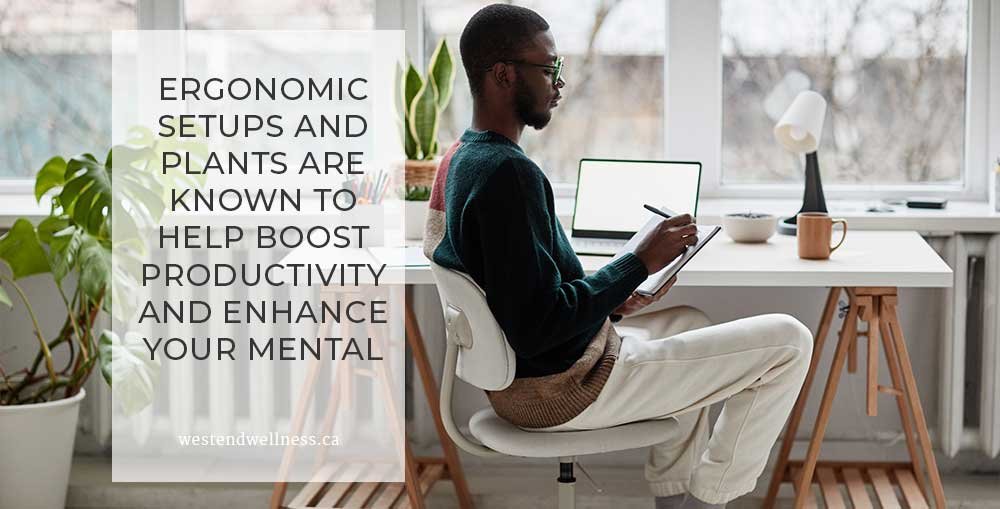Office Wellness: Essential Health Practices at Work
Table of Contents Show
In the contemporary corporate landscape, ensuring good health at work goes beyond personal benefit; it's a critical aspect of professional life.
Key Takeaways For Essential Health Practices at Work
Introduce plants to the workspace for air purification and mental focus.
Invest in ergonomic office furniture to minimize posture-related discomfort.
Take regular short breaks to prevent eye strain and mental fatigue.
Follow the 20/20/20 vision rule to protect your eyes from screen glare.
Cultivate positive interactions and open communication with colleagues.
Dress professionally and comfortably for confidence and performance.
Choose nutritious meals to maintain energy and focus throughout the day.
Opt for walking meetings to incorporate physical activity.
Establish clear work-life boundaries to ensure mental well-being.
In our article "Office Wellness: Essential Health Practices at Work," we want to share practical and effective tips for enhancing physical and mental well-being in office settings.
More and more people are working behind a desk, and these tips are tailored for employees and employers; this guide underscores the importance of incorporating wellness practices into daily routines.
Embracing these strategies fosters a healthier, more productive workplace and hopefully serves as a proactive approach to prevent the need for more intensive health interventions.
While we here at West End Wellness are always ready to help those suffering from bad backs or tight shoulders, we would also instead help prevent those types of visits if possible.
Creating a Productive Workspace
Ergonomic setups and plants boost productivity and enhance mental focus.
Prioritize Ergonomics
Investing in an ergonomic chair and desk setup is crucial. This practice not only minimizes the risk of posture-related discomfort but also prevents long-term musculoskeletal disorders. An ergonomic workspace supports proper posture, reduces back pain, and enhances overall productivity.
Introduce Plants
Adding greenery to the office is not just about aesthetics. Plants purify air quality, which is vital for a healthy work environment. They also enhance mental focus and reduce stress, contributing to a more vibrant and productive office environment.
Maintaining Physical and Mental Well-being
Remember To Take Regular Breaks
Regular short breaks throughout the day are essential. These breaks help reduce eye strain and mental fatigue, preventing burnout. They also improve concentration and productivity, ensuring you remain effective and healthy.
20/20/20 Vision Rule
To protect your eyes from screen glare and reduce the risk of eye strain, follow the 20/20/20 rule. This means every 20 minutes, focus on something 20 feet away for 20 seconds. This simple practice can prevent eye discomfort and maintain visual health.
Fostering Positive Professional Relationships
Cultivate a Supportive Network
Positive interactions with colleagues are key to a healthy work environment. They not only boost morale but also increase workplace satisfaction. A supportive network can reduce stress and foster a sense of belonging, which is crucial for mental well-being.
Open Communication
An environment where feedback and ideas are freely shared enhances team collaboration. It also creates a sense of inclusivity and respect, which are vital for a positive workplace culture.
Positive interactions and open communication elevate morale and team collaboration.
Personal Wellness Practices
Dress for Success
The way you dress impacts your self-perception and performance. Comfortable yet professional attire can significantly influence confidence and productivity. Dressing well also sets a professional tone, reflecting your commitment to your role and workplace.
Plan Healthy Lunches
Choosing nutritious meals is essential for maintaining energy levels throughout the day. It helps avoid mid-afternoon energy slumps and supports overall health. A balanced diet also contributes to better focus and productivity.
Strategies for Work-Life Balance
Incorporate Walking Meetings
Instead of traditional sit-down meetings, opt for walking meetings. This change of scenery and physical activity can boost creativity and physical health. It also provides a break from the sedentary office environment.
After you are done with your call, you can then move into our last tip, which is…
Unplug Post-Work
Establishing clear boundaries between work and personal time is essential for mental well-being. Unplugging from work-related activities after hours helps reduce stress and prevents burnout. It ensures you have time to recharge and maintain a healthy work-life balance.
After your busy day, take a walk to unwind.
Our Final Thoughts
The significance of the practices outlined in "Office Wellness: Essential Health Practices at Work" cannot be overstated. Adhering to these tips is vital not just for immediate well-being but also for long-term health.
Neglecting such practices can lead to a range of issues, including chronic pain, increased stress levels, reduced productivity, and even long-term health complications.
However, by embracing these wellness strategies, you're taking proactive steps towards creating a healthier, more fulfilling work life. These practices are designed to prevent potential health issues and enhance your overall work experience, leading to a more balanced and productive professional life.
Remember, taking care of yourself is paramount. While these tips are a great starting point, listening to your body and seeking professional advice or treatment when needed is crucial.
West End Wellness is always here to offer guidance and support, providing expert care from registered massage therapists and acupuncturists if and when you require it. Embracing these wellness practices, coupled with the expertise available at West End Wellness, can lead to a healthier, happier work life.
If you have any further doubts or questions regarding this subject or another treatment, contact one of our experienced Acupuncturists or Registered Massage Therapists here at West End Wellness Clinic. You can either give us a call or make an appointment.
Disclaimer: Please remember this article is for informational purposes only and should not replace professional medical advice. Please consult a healthcare provider or someone with the correct qualifications before starting any new exercise or treatment program.




